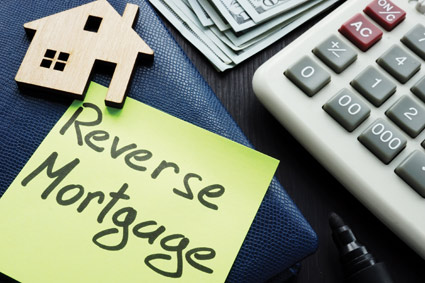
A multitude of elders, having paid off their mortgages many years ago, currently own their homes free and clear of any debt. Some are fortunate, and they have a nest egg that, along with their income (Social Security/pension), allows them to maintain their home and provide for themselves without difficulty. Some are not so fortunate, and although they own their home, they do not have adequate sources of income and other assets to maintain the home as well as provide for their needs.
When an elder is unable to afford his or her home, but has some overwhelming reason to remain there, instead of selling or downsizing, a reverse mortgage, also known as a home equity conversion mortgage (HECM), can provide access to the equity in the home without the traditional monthly payments associated with a mortgage.
In order to qualify for a reverse mortgage, the borrower must be at least 62 years old and own their home. The home must be the borrower’s primary residence, not a rental or vacation property. If the borrower has an existing mortgage on the property, the existing loan must be paid off with money received from the reverse mortgage. There are no income requirements. Further, if they are participating in the federal HECM program, the borrower must undergo consumer counseling before being approved for the reverse mortgage.
Similar to a traditional loan, the property would be appraised as part of the approval process. The amount that can be borrowed depends upon the appraised value of the home, its location, interest rates, and, if there are co-owners, the age of the younger borrower.
Once the loan is closed, payments from the mortgage to the borrower can be taken in a variety of ways, including lump sum, monthly payments, or a line of credit. Typically, the line of credit increases as the homeowner ages thereby allowing more money to be borrowed over time.
Once a reverse mortgage is obtained, the borrower remains responsible for the maintenance and upkeep of the home, as well as for the property insurance and real estate taxes, with any applicable abatement.
A reverse mortgage must be repaid when the elder sells the home, permanently moves out, or dies. With respect to permanently moving out of the home, there is typically a period of time allowed that the elder can be absent from the home – such that if admission to a hospital or rehabilitation center is needed – but will not be permanent, this repayment feature will not be triggered. If the elder dies while still living in the home, the loan must be repaid upon the sale of the home, or it may be paid off by the person who inherits the home if they choose to keep it.
The costs associated with obtaining a reverse mortgage are most commonly the reason why such a mortgage is not obtained. The appraisal, legal fees, loan origination fees, mortgage insurance premiums, and monthly service fees are paid before any funds are disbursed to the borrower; however, these fees are financed within the loan, and the borrower need not pay them out of pocket at closing.
Also, the costs associated have changed over time, and there are now loan programs available with less closing costs than would have been expected in the past.
Elders usually turn to a reverse mortgage for a variety of reasons, including maintaining their quality of life after retirement, paying for prescription drugs or needed medical supplies, or paying for administrative, personal, or nursing services. If there are other financial resources or benefit programs that can be used to pay the ongoing expenses of the elder, then prior to obtaining a reverse mortgage, those should be considered. When other options exist, a reverse mortgage might not be the best option.
Nonetheless, a reverse mortgage can allow an elder to meet their goal of remaining in their home instead of moving to a smaller home or to an assisted living facility or nursing home. When an elder owns his or her home, but does not have the other assets necessary to maintain his or her lifestyle and care needs, a reverse mortgage can be an invaluable option. Ultimately, elders who find themselves in this situation should discuss all of their options before moving forward with a reverse mortgage.
Gina M. Barry is a Partner with the law firm of Bacon Wilson, P.C., Attorneys at Law. She is a member of the National Association of Elder Law Attorneys, the Estate Planning Council, and the Western Massachusetts Elder Care Professionals Association. She concentrates her practice in the areas of estate and asset protection planning, probate administration and litigation, guardianships, conservatorships and residential real estate. Gina may be reached at 413-781-0560 or gbarry@baconwilson.com.